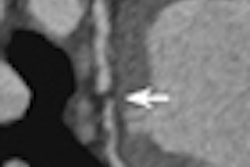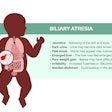Modest population-wide weight loss could result in dramatic reductions in the burden of type 2 diabetes and cardiovascular disease, according to a new study published online on 9 April in the British Medical Journal (BMJ).
An international team of researchers from Spain, Cuba, and the U.S. examined the association between population-wide body changes and diabetes incidence, prevalence, and death rates from type 2 diabetes, cardiovascular disease, cancer, and all causes in Cuba between 1980 and 2010 (BMJ, 9 April, 2013). They found that following the Cuban economic crisis of the early 1990s, food and fuel shortages resulted in a decline in dietary energy intake and increases in physical activity that resulted in an average population-wide weight loss of 4 kg to 5 kg, the researchers wrote.
Lead author Dr. Manuel Franco of the University of Alcalá in Madrid, and colleagues, used four population-based cross-sectional surveys that collected data on height, weight, energy intake, smoking, and physical activity in participants between the ages of 15 and 74. The team focused on Cuba because the population is relatively homogeneous and has undergone large social and economic changes directly related to food consumption and physical activity from 1980 through 2010.
Franco's team found that:
Between 1991 and 1995 there was an average 5 kg reduction, although between 1995 and 2010 there was a population-wide weight regain of 9 kg.
Smoking prevalence decreased during the 1980s and 1990s and declined more rapidly in the 2000s.
Diabetes prevalence increased from 1997 onward as the population began to gain weight. Diabetes incidence decreased during the weight-loss period but increased in the weight-regain years.
In 1996, five years after the start of the weight-loss period, there was a downward trend in death from diabetes that lasted six years. In 2002, after the Cuban population had regained weight, diabetes death rates returned to pre-crisis trends.
Coronary heart disease and stroke death trends declined slowly between 1980 to 1996; this decline increased dramatically after the weight-loss phase. These descending trends have stopped since the weight regain phase.
The study shows that within a relatively short period, modest weight loss in the whole population can have a profound effect on the overall burden of diabetes and deaths from cardiovascular disease, Franco's team concluded.



















